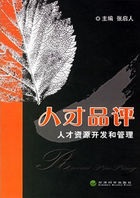- he knows that his great-grandfather wore a white neckcloth, and takes it for granted, may be, that his grandfather did so too. Not a bit of it. The young Englander of the Coningsby type - the Count d'Orsays of my youth, scorned the white tie alike of their fathers and their sons. At dinner-parties or at balls, they adorned themselves in satin scarfs, with a jewelled pin or chained pair of pins stuck in them. I well remember the rebellion - the protest against effeminacy - which the white tie called forth amongst some of us upon its first invasion on evening dress. The women were in favour of it, and, of course, carried the day; but not without a struggle. One night at Holkham - we were a large party, I daresay at least fifty at dinner - the men came down in black scarfs, the women in white 'chokers.' To make the contest complete, these all sat on one side of the table, and we men on the other. The battle was not renewed; both factions surrendered. But the women, as usual, got their way, and - their men.
For my part I could never endure the original white neckcloth. It was stiffly starched, and wound twice round the neck; so I abjured it for the rest of my days; now and then I got the credit of being a coxcomb - not for my pains, but for my comfort. Once, when dining at the Viceregal Lodge at Dublin, I was 'pulled up' by an aide-de-camp for my unbecoming attire; but I stuck to my colours, and was none the worse. Another time my offence called forth a touch of good nature on the part of a great man, which I hardly know how to speak of without writing me down an ass. It was at a crowded party at Cambridge House. (Let me plead my youth; I was but two-and-twenty.) Stars and garters were scarcely a distinction. White ties were then as imperative as shoes and stockings; I was there in a black one. My candid friends suggested withdrawal, my relations cut me assiduously, strangers by my side whispered at me aloud, women turned their shoulders to me; and my only prayer was that my accursed tie would strangle me on the spot. One pair of sharp eyes, however, noticed my ignominy, and their owner was moved by compassion for my sufferings. As I was slinking away, Lord Palmerston, with a BONHOMIE peculiarly his own, came up to me; and with a shake of the hand and hearty manner, asked after my brother Leicester, and when he was going to bring me into Parliament? - ending with a smile:
'Where are you off to in such a hurry?' That is the sort of tact that makes a party leader. I went to bed a proud, instead of a humiliated, man; ready, if ever I had the chance, to vote that black was white, should he but state it was so.
Beards and moustache came into fashion after the Crimean war.
It would have been an outrage to wear them before that time.
When I came home from my travels across the Rocky Mountains in 1851, I was still unshaven. Meeting my younger brother - a fashionable guardsman - in St. James's Street, he exclaimed, with horror and disgust at my barbarity, 'I suppose you mean to cut off that thing!'
Smoking, as indulged in now, was quite out of the question half a century ago. A man would as soon have thought of making a call in his dressing-gown as of strolling about the West End with a cigar in his mouth. The first whom I ever saw smoke a cigarette at a dining-table after dinner was the King; some forty years ago, or more perhaps. One of the many social benefits we owe to his present Majesty.















